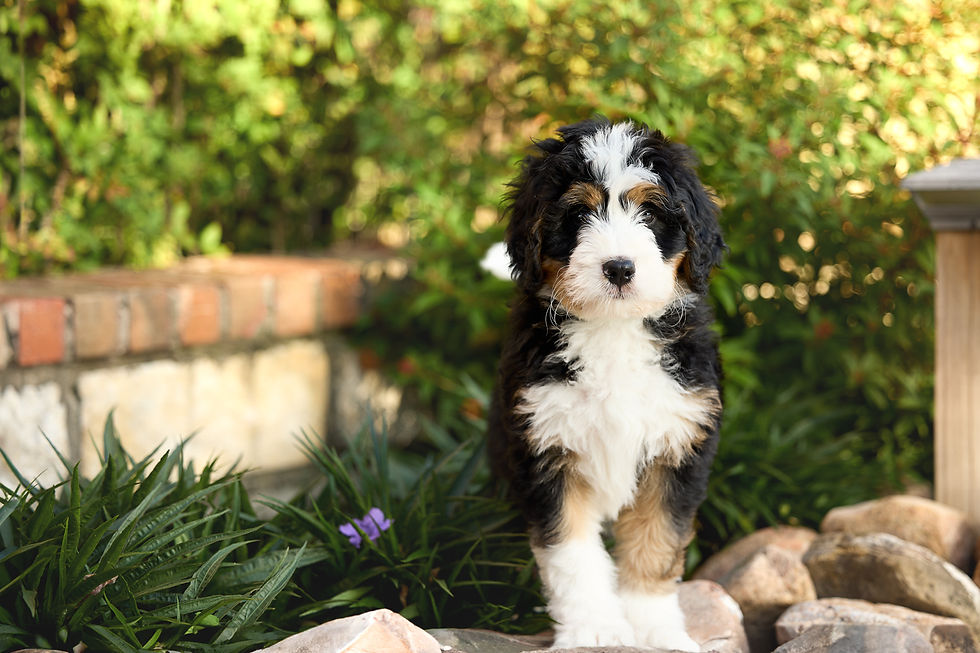Helping Your Doodle Feel Calm When You’re Away
- Aubry Ramsey
- Oct 28, 2025
- 2 min read
One of the hardest parts of welcoming a doodle into your home is realizing just how attached they become so quickly. These little bundles of love thrive on connection, and when you’re not around, that absence can feel really big to them. Separation anxiety is common in doodles, especially in the first weeks after going home, and it’s something every owner should be prepared for.

When a puppy goes home, it’s a huge adjustment for them. Whining, pacing, chewing things they shouldn’t, or following you everywhere can all be signs that they’re feeling stressed. Although we have done everything we can to make the separation as smooth as possible, including socialization and training, it’s still a big change for them. It doesn’t mean they’re “bad” or that you’ve done something wrong. It just means they’re learning that the world feels safe even when you’re not right there.
One of the most important things you can do is help your doodle build confidence gradually. Start with very short separations while you’re still in the house, and leave the room for a minute or two and come back calmly. Over time, extend that period so your puppy begins to understand that nothing bad happens when you step away. Consistency and patience are key.
Creating a comforting space also makes a big difference. Their bed, favorite toys, and even an item that smells like you can help your doodle feel secure. Background sounds, like soft music or a white noise machine, can also soothe nervous puppies while you’re gone.
Interactive toys, treat puzzles, or favorite chews can give your doodle something to focus on besides your absence. Observing what engages them the most can make a noticeable difference in how they handle being alone.
Every puppy adjusts at their own pace. Some find their groove quickly, while others need more time. Celebrate the small wins, like a calm nap or playing quietly on their own. Those little successes build trust, security, and independence that will benefit them for life.
If your doodle shows signs of anxiety that feel more intense, don’t hesitate to reach out to us, your vet, or a professional trainer. A little guidance early on can prevent small worries from turning into bigger struggles. With patience, love, and a supportive environment, your doodle will learn to feel safe and confident even when you’re not in the room.






Comments